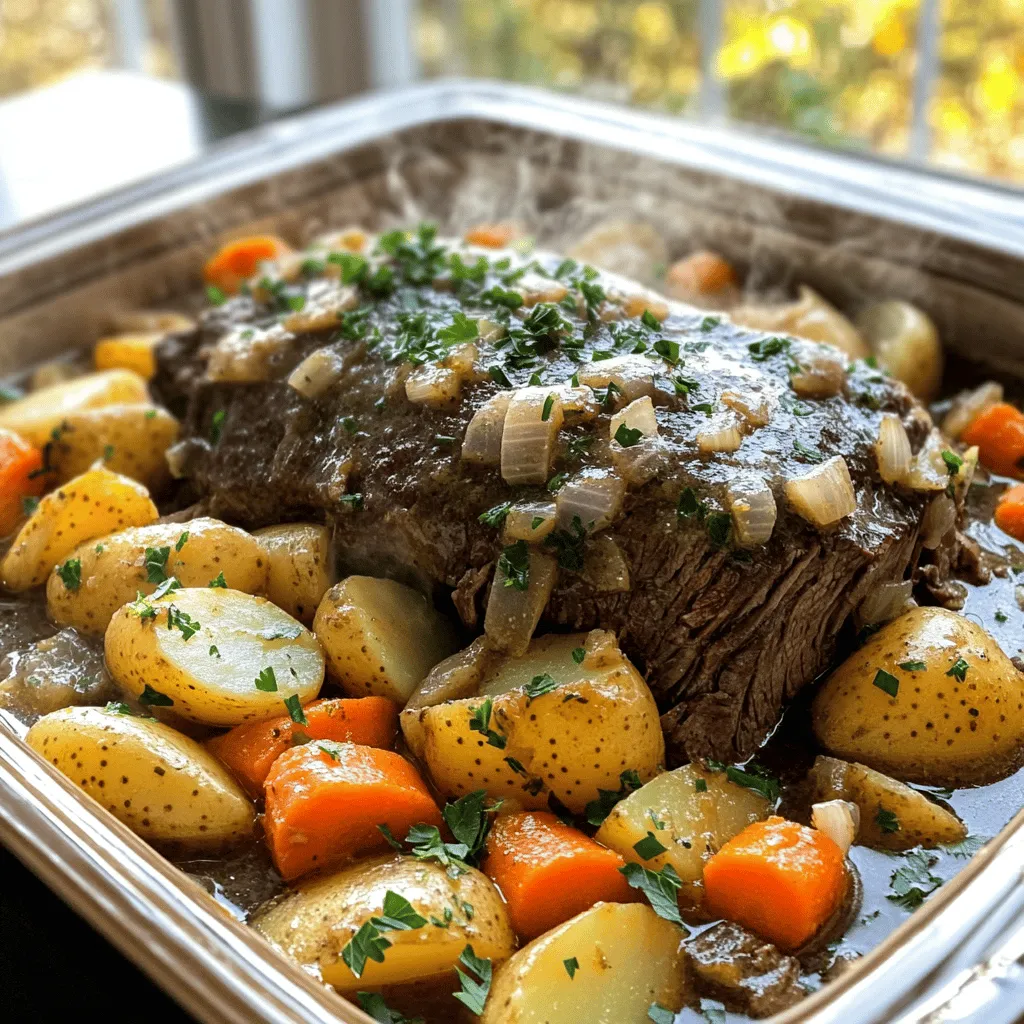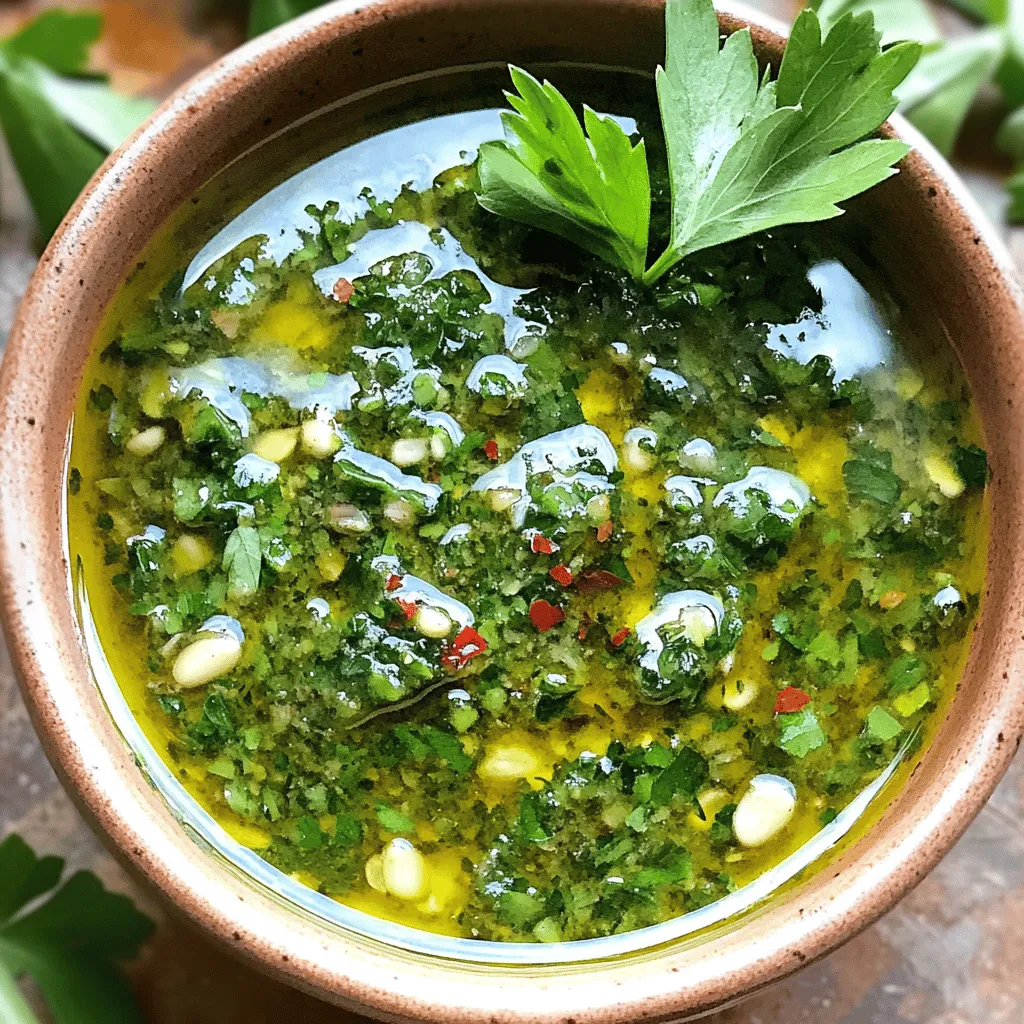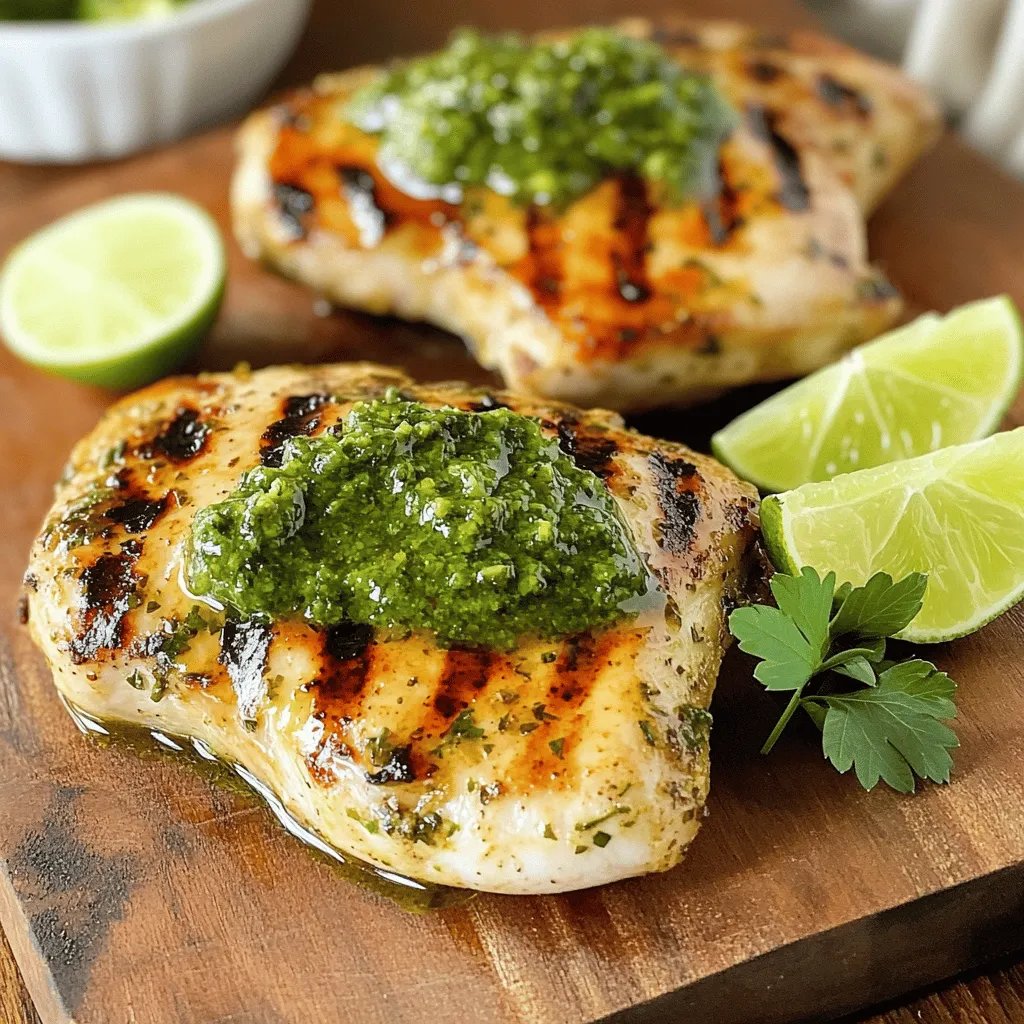Introduction
Marinating chicken is a culinary technique that transforms ordinary poultry into an extraordinary dish bursting with flavor and tenderness. The process of marinating involves soaking the chicken in a seasoned liquid, allowing it to absorb a medley of tastes while breaking down the protein fibers to ensure a juicy and succulent result. Among the myriad of marinade options available, the Italian Chicken Marinade stands out, encapsulating the essence of Italy’s rich culinary heritage.
Italian cuisine is celebrated for its use of fresh ingredients, vibrant flavors, and aromatic herbs. This Italian Chicken Marinade embodies these qualities, making it a go-to recipe for home cooks seeking to infuse their meals with authentic Mediterranean flair. Whether you’re hosting a dinner party, prepping for a family barbecue, or simply looking to elevate a weeknight dinner, this marinade is not only simple to prepare but also incredibly versatile. It pairs beautifully with various cooking methods, including grilling, baking, or pan-searing, allowing you to customize your dish to your liking.
As we dive deeper into the world of marinades, you’ll discover how easy it is to create a flavorful Italian Chicken Marinade that will impress your family and friends while enhancing your culinary repertoire.
Understanding Marinades
At its core, a marinade is a seasoned liquid used to soak food—primarily meats, fish, and vegetables—before cooking. The primary purpose of a marinade is twofold: to infuse flavor and to tenderize the meat. When chicken is marinated, the liquid penetrates the meat, adding depth and richness to its natural flavor.
The science behind marinating chicken lies in the balance of acids, oils, and seasonings. Acids, such as vinegar or citrus juices, help to break down the proteins in the meat, making it tender and juicy. Oils, like olive oil, not only provide flavor but also help to retain moisture during the cooking process. Additionally, the right combination of herbs, spices, and seasoning allows for a spectrum of flavors that can transport your palate to the sun-kissed coasts of Italy.
When creating a successful marinade, it is essential to achieve the right proportions of each component. Too much acid can result in a mushy texture, while too little may not yield the desired flavor. A well-balanced marinade will have enough acidity to tenderize the meat, oil to retain moisture, and seasoning to enhance the overall taste.
Ingredients Breakdown
Crafting an Italian Chicken Marinade involves a handful of key ingredients, each contributing to the overall flavor profile and ensuring a delightful dining experience. Here’s a closer look at the components that make this marinade stand out:
Olive Oil
Olive oil is the cornerstone of any Italian dish, and for good reason. This healthy fat not only adds a rich, fruity flavor but also helps to keep the chicken moist during cooking. Rich in monounsaturated fats and antioxidants, olive oil is known for its numerous health benefits, including heart health and anti-inflammatory properties. Choosing high-quality extra virgin olive oil can elevate the flavor profile of your marinade and, ultimately, your dish.
Red Wine Vinegar
Red wine vinegar plays a crucial role in providing the necessary acidity for the marinade. Its tangy flavor pairs beautifully with the other ingredients, adding depth and brightness. This vinegar is a staple in Italian cuisine, often used in dressings and marinades to enhance the taste of proteins and vegetables alike. The acidity in red wine vinegar also aids in tenderizing the chicken, ensuring that each bite is succulent and flavorful.
Fresh Lemon Juice
The addition of fresh lemon juice introduces a bright, zesty quality to the marinade. Not only does it complement the richness of the olive oil, but it also enhances the overall flavor profile of the dish. Lemon juice is another source of acidity, which aids in tenderizing the meat while imparting a refreshing citrus note that brightens the flavors of the marinade.
Garlic
Garlic is a beloved ingredient in Italian cooking, renowned for its robust flavor and aromatic qualities. In this marinade, minced or crushed garlic adds a savory depth that elevates the dish. Beyond flavor, garlic is packed with health benefits, including antimicrobial properties and heart health advantages. Its pungent essence blends seamlessly with the other ingredients, ensuring a well-rounded taste experience.
Dried Herbs (Oregano, Basil, Rosemary)
Italian cuisine is synonymous with the use of herbs, and dried herbs are essential for creating an authentic flavor profile in this marinade.
– Oregano: A quintessential herb in Italian cooking, oregano brings a warm, slightly bitter taste that enhances the overall flavor of the marinade.
– Basil: Known for its sweet and aromatic qualities, dried basil adds a hint of freshness that complements the other ingredients beautifully.
– Rosemary: With its distinctive pine-like fragrance, rosemary lends an earthy quality to the marinade, making it a perfect complement to grilled or roasted chicken.
Together, these dried herbs form a robust flavor base that captures the essence of Italian cooking.
Salt and Pepper
Salt and pepper are fundamental seasonings in any recipe, and they play a vital role in enhancing the flavors of the ingredients. Salt helps to draw out moisture and concentrate flavors, while pepper adds a mild heat and aromatic quality. Adjusting the amounts of salt and pepper in your marinade allows you to customize the seasoning to suit your taste preferences.
Red Pepper Flakes
For those who enjoy a bit of heat, red pepper flakes can be added to the marinade for an extra kick. This ingredient brings a touch of spice that enhances the overall flavor without overpowering the dish. It’s an optional addition that can be easily adjusted based on your heat tolerance.
Honey
While not a traditional ingredient in all Italian marinades, honey can be included to balance the acidity of the vinegar and lemon juice. This optional sweetener adds a subtle depth of flavor and can help to caramelize the chicken when cooked, resulting in a beautifully browned finish. For those who prefer a touch of sweetness, incorporating honey into the marinade can elevate the dish even further.
Preparing the Marinade
Creating your Italian Chicken Marinade is a straightforward process that requires minimal time and effort. Here’s how to prepare the marinade step-by-step:
1. Gather Your Ingredients: Start by assembling all the ingredients listed above. Fresh ingredients, particularly the garlic and lemon juice, will yield the best flavor.
2. Mix the Ingredients: In a medium-sized mixing bowl, combine the olive oil, red wine vinegar, fresh lemon juice, minced garlic, and the dried herbs.
3. Whisk Together: Using a whisk or fork, mix the ingredients thoroughly until they are well combined. This step is crucial, as it ensures that the oil, acid, and seasonings blend effectively, creating a cohesive marinade.
4. Add Salt and Pepper: Season the marinade with salt and pepper to taste. Remember that you can always adjust the seasoning later, so it’s best to start with a moderate amount.
5. Incorporate Optional Ingredients: If you choose to add red pepper flakes for heat or honey for sweetness, this is the time to incorporate them. Whisk again to ensure they are evenly distributed throughout the marinade.
6. Taste and Adjust: Before using the marinade, taste it and adjust the seasoning as needed. This step allows you to personalize the flavor to your liking.
Once your marinade is prepared, it’s ready to be used. You can marinate your chicken immediately, or store the marinade in a sealed container in the refrigerator for up to a week, allowing the flavors to meld even further.
By following these steps, you will create a flavorful Italian Chicken Marinade that elevates your dish, making it a standout meal at any gathering. In the next section, we will discuss how to properly marinate your chicken, the recommended marinating times, and tips for cooking the marinated chicken to perfection.

Marinating the Chicken
Marinating chicken is a crucial step that not only infuses flavor but also tenderizes the meat, making it more enjoyable to eat. For the best results, it is essential to adhere to certain best practices when marinating chicken with your Italian marinade.
Best Practices for Marinating Chicken
When it comes to marinating chicken, the type of container used can significantly impact the marination process. Glass or food-safe plastic containers are ideal as they do not react with the acidic ingredients like lemon juice or vinegar found in many marinades. Avoid using metal containers, which can react with the marinade and alter the flavor of your chicken.
To ensure that the chicken is thoroughly coated, place the chicken pieces in the container and pour the marinade over them, making sure they are fully submerged. For an even better coating, consider using a resealable plastic bag. Squeeze out as much air as possible before sealing it. This method allows the marinade to cling closely to the chicken, ensuring that every bite is packed with flavor.
Recommended Marinating Times
The length of time you marinate your chicken can dramatically affect the taste and tenderness of the meat. For this Italian chicken marinade, a minimum of 30 minutes is recommended, but if you have the time, aim for at least 2 to 4 hours. Marinating overnight in the refrigerator is ideal for maximum flavor infusion. However, avoid marinating for more than 24 hours, as the acid in the marinade can break down the meat fibers too much, resulting in a mushy texture.
Cooking Methods
Once your chicken has marinated to perfection, it’s time to cook it. This recipe is versatile, allowing for both grilling and baking methods. Each cooking method has its unique benefits and will produce delicious results.
Grilling Chicken
Grilling is a fantastic way to prepare marinated chicken, as it enhances the flavor while adding a delightful char. Preheat your grill to medium-high heat. Before placing the chicken on the grill, ensure the grates are well-oiled to prevent sticking. This helps achieve those coveted grill marks.
When grilling, place the chicken on the grill and avoid moving it too much. This allows it to sear properly and develop those nice grill marks. Cook the chicken for about 6-8 minutes on each side, depending on the thickness of the pieces. To ensure that the chicken is thoroughly cooked, use a meat thermometer. The internal temperature should reach 165°F (75°C). Once cooked, let the chicken rest for a few minutes before slicing; this helps maintain its juiciness.
Baking Chicken
Baking is another excellent method for cooking marinated chicken and is particularly convenient if you’re preparing a large batch. Preheat your oven to 400°F (200°C). Place the marinated chicken in a baking dish, ensuring that it is arranged in a single layer for even cooking.
Bake the chicken for 25-30 minutes, or until it reaches the appropriate internal temperature of 165°F (75°C). You can also baste the chicken with the leftover marinade halfway through cooking to enhance the flavor further. Covering the dish with aluminum foil for the first half of the cooking process can help retain moisture, ensuring tender and juicy results.
Serving Suggestions
Now that the chicken is cooked, it’s time to think about how to serve it. This Italian chicken pairs wonderfully with a variety of side dishes, allowing for a complete and satisfying meal.
Suggested Side Dishes
1. Pasta: A classic option, toss the chicken with spaghetti or penne in a light garlic and olive oil sauce, or serve it alongside a hearty marinara sauce.
2. Salads: A fresh mixed greens salad topped with cherry tomatoes, cucumbers, and a balsamic vinaigrette complements the flavors of the chicken beautifully. Consider adding roasted vegetables for a more filling option.
3. Vegetables: Grilled or roasted seasonal vegetables, such as zucchini, bell peppers, or asparagus, make for a colorful and nutritious side.
4. Rice or Quinoa: Serve the chicken over a bed of herbed rice or quinoa, which absorbs the marinade’s flavors perfectly.
Presentation Ideas
To elevate your dish visually, consider garnishing the chicken with fresh herbs such as basil or parsley just before serving. Slices of lemon can be arranged around the plate for a pop of color and a hint of brightness that complements the marinade. A drizzle of balsamic glaze can also add an elegant touch.
Nutritional Information
This Italian chicken marinade not only enhances flavor but also contributes to a balanced diet. Chicken is a rich source of lean protein, essential for muscle growth and repair. The olive oil in the marinade provides healthy fats, which are crucial for heart health. Additionally, the fresh herbs and lemon juice contribute essential vitamins and antioxidants, supporting overall wellness.
The combination of protein, healthy fats, and vitamins makes this dish a nutritious option for any meal, whether it’s a weeknight dinner or a special occasion.
Conclusion
Using this Italian chicken marinade is a fantastic way to bring vibrant flavors to your meals while ensuring a healthy and balanced dish. Its versatility allows you to enjoy it grilled or baked, and it pairs beautifully with a wide range of side dishes, making it suitable for any dining occasion.
Incorporating this recipe into your cooking repertoire not only enhances your culinary skills but also allows you to create delicious, homemade meals that embody the essence of Italian cuisine. The joy of preparing and sharing flavorful dishes with loved ones is truly one of life’s greatest pleasures.
Whether you’re hosting a dinner party or enjoying a quiet meal at home, this Italian chicken marinade will elevate your dining experience. Embrace the flavors, enjoy the process, and savor the delightful results.




